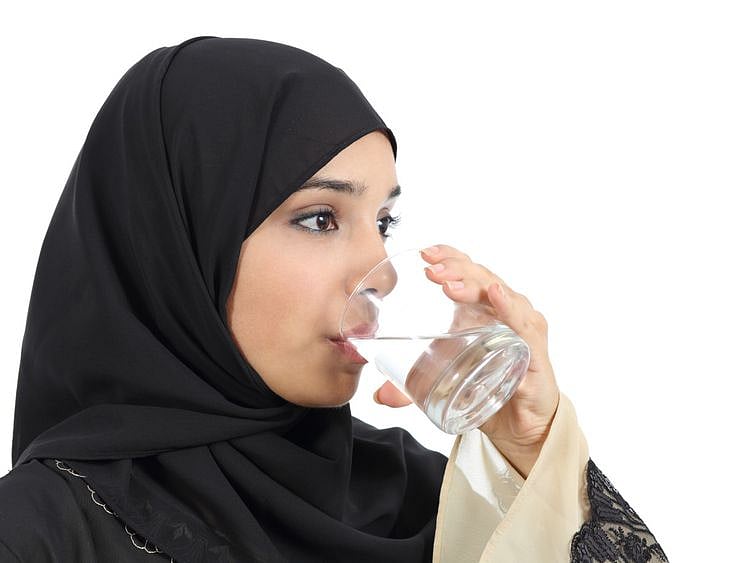Dubai: Assimilating fluids and maintaining a proper electrolyte balance, in other words hydrating oneself, is as important as maintaining good nutrition during Ramadan, say doctors.
The human body is made up off nearly 65 to 70 per cent water which plays a very vital role as major life source to the body. It is required to carry nutrients and oxygen into the cells, aid digestion, prevent constipation, maintain body temperature, sodium-potassium-calcium balance, normalise blood pressure and renal functions and stabilise heart beats.
How much water do we need on daily basis and how much while fasting?
Dehydration during fasting can cause urinary tract infections (UTIs) and kidney stones
While observing the fast it is important to maintain the fluid levels in your body, especially to avert impaired kidney functions, said Dr Sanjay Bhat, specialist urologist at Prime Hospital.
“As it is nearing summer, people staying in air –conditioned homes tend to be dehydrated and we receive many complains of kidney stones and UTIs. With the wrong choice of liquids and foods while ending the fast, people tend to aggravate their dehydration,” he said.
According to Dr Bhat, while ending the fast during Iftar people tend to choose carbonated drinks, coffee and tea which are all diruetics and go for large portions of red meat preparations, which are high in uric acid.
Symptoms of dehydration
You will know you are dehydrated when:
How to prevent dehydration
During Iftar
Network Links
GN StoreDownload our app
© Al Nisr Publishing LLC 2026. All rights reserved.
